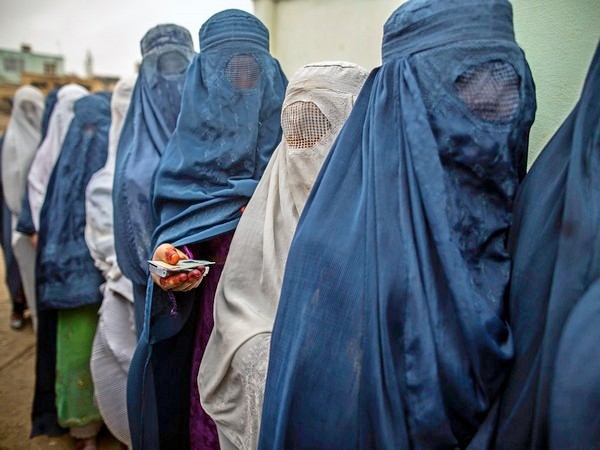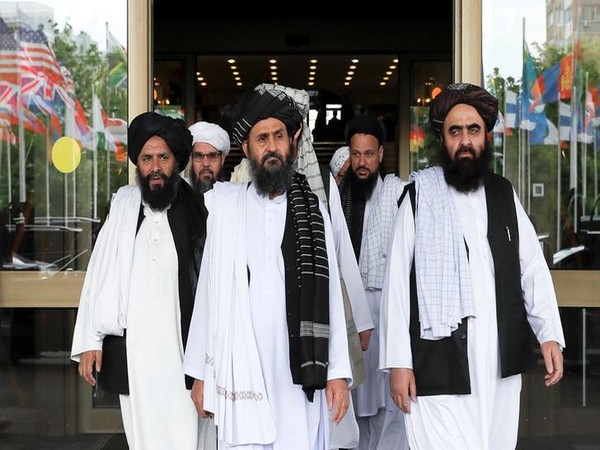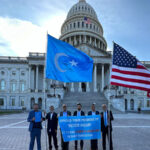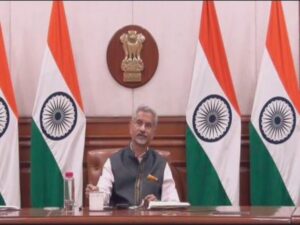
Kabul [Afghanistan], October 23 (ANI): Since the Taliban seized power in Afghanistan in August last year, women and girls in the country continue to be persecuted for speaking out for fundamental rights and have been limited to their homes, according to a recent report of United Nations. Taliban continue to impose its brutal regime on Afghan women forbidding them from exposing their faces in public and has also deprived them of their reproductive rights which represents one of the most severe examples of the regression of women’s and girls’ rights, Khaama Press reported.
According to UN Secretary-General Antonio Guterres, the percentage of women participating in peace negotiations is also decreasing, with no participation of women in leadership in the war-torn country.
“Only with equal representation of women in leadership and participation, can we build stable, peaceful societies,” said the UN Chief in a tweet on Sunday.
After the Taliban seized control of Afghanistan on August 15, 2021, they immediately began rolling back the rights of women and girls. Women began to protest on the streets since Taliban’s first week in power, despite the grave risks they faced in doing so.
By early September, women-led protests were taking place in Herat province in western Afghanistan and quickly spread across multiple provinces. According to Human Rights Watch, the Taliban response was brutal from the beginning, beating protesters, disrupting protests, and detaining and torturing journalists covering the demonstrations. The Taliban also banned unauthorized protests. Over time, the Taliban’s abusive responses escalated, with a particularly brutal response to a protest on January 16 in Kabul, when Taliban members threatened, intimidated, and physically assaulted protesters, using pepper spray and electric shock devices.
Notably, the situation of human rights in Afghanistan has worsened since the collapse of the Afghan government and the Taliban’s return to power in August last year. Although the fighting in the country has ended, serious human rights violations continue unabated, especially against women and minorities.
Besides this, the continuously soaring prices of food products in the country have emerged as a new challenge for Afghans. In a short span of fewer than three months, food prices have almost doubled, reported Khaama Press. (ANI)
Regression of women’s rights continues in Afghanistan: Report

Kabul [Afghanistan], October 23 (ANI): Since the Taliban seized power in Afghanistan in August last year, women and girls in the country continue to be persecuted for speaking out for fundamental rights and have been limited to their homes, according to a recent report of United Nations. Taliban continue to impose its brutal regime on Afghan women forbidding them from exposing their faces in public and has also deprived them of their reproductive rights which represents one of the most severe examples of the regression of women’s and girls’ rights, Khaama Press reported.
According to UN Secretary-General Antonio Guterres, the percentage of women participating in peace negotiations is also decreasing, with no participation of women in leadership in the war-torn country.
“Only with equal representation of women in leadership and participation, can we build stable, peaceful societies,” said the UN Chief in a tweet on Sunday.
After the Taliban seized control of Afghanistan on August 15, 2021, they immediately began rolling back the rights of women and girls. Women began to protest on the streets since Taliban’s first week in power, despite the grave risks they faced in doing so.
By early September, women-led protests were taking place in Herat province in western Afghanistan and quickly spread across multiple provinces. According to Human Rights Watch, the Taliban response was brutal from the beginning, beating protesters, disrupting protests, and detaining and torturing journalists covering the demonstrations. The Taliban also banned unauthorized protests. Over time, the Taliban’s abusive responses escalated, with a particularly brutal response to a protest on January 16 in Kabul, when Taliban members threatened, intimidated, and physically assaulted protesters, using pepper spray and electric shock devices.
Notably, the situation of human rights in Afghanistan has worsened since the collapse of the Afghan government and the Taliban’s return to power in August last year. Although the fighting in the country has ended, serious human rights violations continue unabated, especially against women and minorities. Besides this, the continuously soaring prices of food products in the country have emerged as a new challenge for Afghans. In a short span of fewer than three months, food prices have almost doubled, reported Khaama Press. (ANI)

















